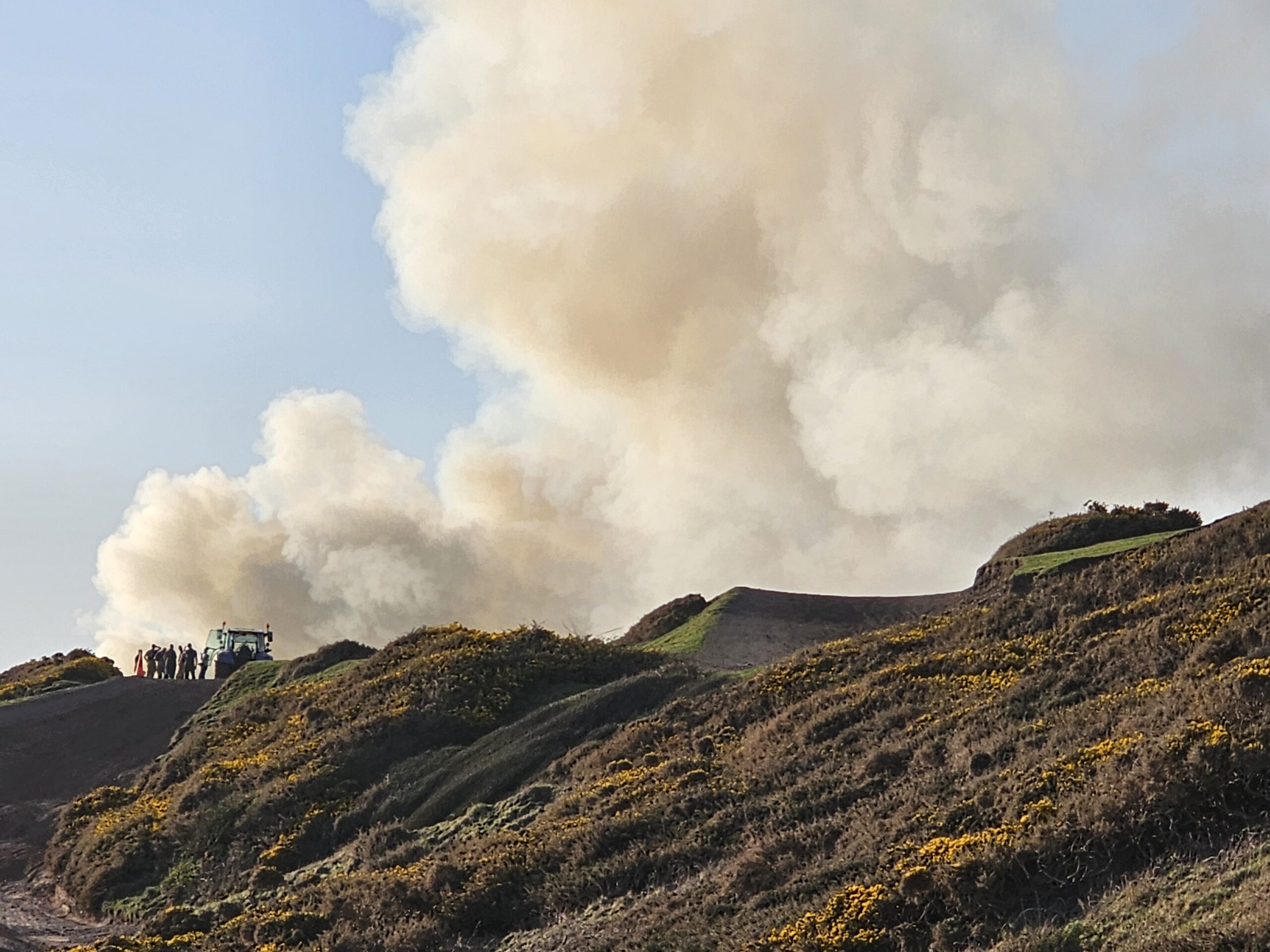Published 11 April 2025
Fire Chiefs issue urgent public safety advice as UK wildfires soar past 2022 record

Fire Chiefs have today reissued urgent public safety advice following reports that wildfires are increasingly likely in some parts of the country this weekend. As of this morning (Friday 11 April), fire and rescue services in England and Wales* have responded to 380 wildfires so far this year – more than double the number for the same period in 2022, which went on to be a record year for wildfires.
The Met Office has warned that temperatures are set to peak in London and the South East on Friday. With most wildfires caused by human activity – accidentally and some deliberately – the National Fire Chiefs Council (NFCC) is urging the public to be extra vigilant and careful including by avoiding the use of disposable barbecues in open countryside, parks and moorland areas, and by not discarding cigarettes, matches or glass bottles that could ignite dry vegetation.
A particularly dry March, followed by warmer-than-average temperatures in April, has seen a number of significant wildfires across the UK over the last fortnight. In recent days, the Scottish Fire and Rescue Service issued “extreme” wildfire warnings (for Thursday 10 April) for south-west, eastern, central and northern Scotland. Meanwhile firefighters in Northern Ireland battled wildfires there over a number of days.
National Fire Chiefs Council Chair, Phil Garrigan, said:
“We want people to enjoy this lovely weather, we are just asking that they take extra care. One inconsiderate action or small mistake can have huge consequences when it comes to wildfires, so we are asking that people follow this important advice so that they can keep themselves and everyone else safe.
“I also want to put on record my sincere thanks to all our firefighters from across the UK who have been battling hard to tackle the wildfires we have seen in recent days, often in really challenging conditions. They continually do our sector proud.
“With the increase in extreme weather events, we know that fire and rescue services are stretched as they seek to keep their communities safe. That is why we are calling for a long-term cross government response and sustained investment to ensure we can meet these emerging threats now and importantly in the future.”
NFCC is also urging the public to better understand the risks of fires in the open by visiting their Wildfire Aware webpages. Even a small fire can lead to a significant wildfire, posing a risk to people, property and wildlife.
Most wildfires in the UK are caused by human activity, including leisure activities and deliberate acts, but the impact of climate change is also said to be increasing the risk and severity of wildfires.
Fire and rescue services are responding to wildfires earlier in the season and typically lasting longer due to prolonged higher temperatures than the historic average.
Wildfires have traditionally been limited to primarily rural areas of the UK, but can occur almost anywhere in the country, and in recent years there have been incidents of wildfires on the rural-urban interface, such as those seen in London in the summer of 2022.
Public Safety Advice:
- Avoid using disposable barbecues in open countryside, parks, and moorland areas.
- Do not discard cigarettes, matches, or glass bottles, as they can ignite dry vegetation.
- Follow local authority guidance on fire risks and restrictions.
- If you notice any suspicious behaviour or see someone intentionally starting a fire, contact the Police immediately or report the information anonymously to Crimestoppers on 0800 555 111. If there is a fire, call 999 immediately.
- Report any signs of fire immediately by calling 999 and asking for the Fire and Rescue Service.
ENDS
Notes to editors
- *Data from National Resilience shows that since the start of the year, fire and rescue services in England and Wales have responded to 380 wildfires, in comparison to 188 for the same period in 2022.
- Image shows wildfire in Cumbria over the weekend of 5th/6th April 2025.
- Under NFCC’s Operational Guidance definition (which English and Welsh fire and rescue services use), a wildfire meets one or more of the following:
-
- Involves a geographical area of at least one hectare (10,000 square metres)
- Has a sustained flame length of more than 1.5 metres
- Requires a committed resource of at least four fire and rescue service appliances/resources
- Requires resources to be committed for at least six hours
- Presents a serious threat to life, environment, property, and infrastructure
- NFCC’s Wildfire Position Statement setting out key asks to decision makers can be found here.
- The National Fire Chiefs Council (NFCC) is an independent membership association and the professional voice of the UK Fire and Rescue Service. NFCC supports fire and rescue services to continually improve, helping them to save lives and keep their local communities safe. NFCC is a charity and a membership association supporting and representing the UK Fire and Rescue Service. Founded in 1941, NFCC was established as a company and charity in 1998 as The Chief Fire Officers’ Association, transforming into the NFCC in 2017.
